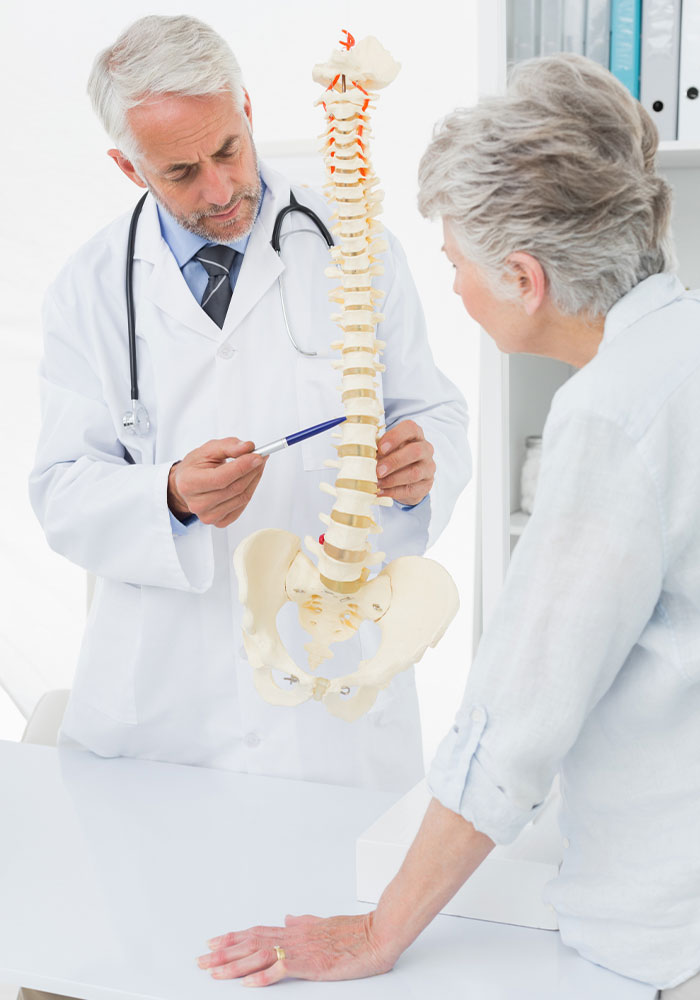David T. Chang, M.D., Ph.D., D.A.B.N.S.
Complex Spine Neurosurgeon located in Minnesota and Western Wisconsin
A herniated disc may compress or irritate your spinal cord or spinal nerve, causing various pain symptoms. In most cases, herniated disc symptoms improve with conservative care. But when your spine problems affect your quality of life, you may need to consider surgery. Board-certified neurosurgeon David Chang, MD-PhD, DABNS, specializes in finding effective solutions for a problematic herniated disc, including spine surgery when needed. Call the office or schedule an appointment online today.

Herniated Disc Q&A
What is a herniated disc?
With a herniated disc, there’s a break or tear in the tough exterior of your intervertebral disc, allowing the gel-like center to leak into the spinal canal. The herniation may compress or irritate your spinal cord or spinal nerves, causing pain.
Intervertebral discs provide a cushion in between each vertebral bone in your spine. These discs act as shock absorbers and allow you to move your spine with ease.
Due to the wear and tear of daily life and lack of adequate blood supply, intervertebral discs lose moisture and shrink as you get older, making them more susceptible to exterior tearing that leads to herniation.

What are the symptoms of a herniated disc?
Symptoms of a herniated disc vary and depend on the location and severity of the herniation. You can develop a herniated disc in any part of your spine, but it most often affects the cervical and lumbar spine.
With a herniated disc, you may experience:
- Dull neck or back pain
- Burning, tingling, or numbness that radiates into your legs or arms
- Leg or arm weakness
- Electric shock-like sensations
- Difficulty walking or maintaining balance
A herniated disc is a common cause of sciatica in the lumbar spine, a nerve pain condition affecting your sciatic nerve.
When should I seek medical help for a herniated disc?
Dr. Chang recommends you schedule a consultation for your herniated disc if it causes pain that radiates into your arms or legs. He conducts a comprehensive history and physical and examines your spine to locate the source of your pain.
To assess the severity of the herniation, Dr. Chang has you undergo diagnostic imaging tests such as X-rays, a CT scan, or an MRI.
How is a herniated disc treated?
Most patients get relief from their herniated disc symptoms with conservative care. Dr. Chang recommends:
- Rest
- Weight loss
- Physical therapy
- At-home exercise program
- Nonsteroidal anti-inflammatory drugs (NSAIDs)
- Oral steroids
- Anti-inflammatory injections
If you continue to experience pain from your herniated disc, Dr. Chang may recommend surgical intervention. The highly skilled neurosurgeon may perform a microdiscectomy with or without artificial disc replacement, spinal decompression, or spinal fusion.
When possible, Dr. Chang uses minimally invasive tools and techniques when performing spine surgery to reduce scarring and recovery time.
Back pain is common and may develop for several reasons. For expert care from a skilled spine surgeon, call the office of David Chang, MD-PhD, DABNS, or schedule an appointment online today.